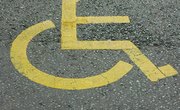
Through the Social Security Administration (SSA), you can receive Social Security Disability Insurance (SSDI) or Supplemental Security Income (SSI) if you qualify for them. The eligibility criteria for these programs are quite different. SSI is a needs-based program that supports low-income elderly or disabled people. However, SSDI requires you to pay taxes before qualifying for insurance.
Not everyone qualifies for SSI because it has strict income criteria. So, if you are not eligible for that despite having a disability, you may want to pay closer attention to SSDI. In particular, you need to understand the homeownership rules, which may influence access to these benefits.
How SSDI works
You can access your Social Security Disability Insurance benefits if you meet the set criteria. These include the following:
1. Disability Requirements
You must be dealing with a medical issue that meets Social Security’s definition of being disabled. You should be unable to work for 12 months or more due to that disability.
Also, you should be unable to perform other kinds of jobs that could help you earn a living. For example, if you have another job that enables you to make more than $1,310 a month, you will be ineligible for SSDI.
It’s also worth noting that Social Security maintains a medical conditions list, aka “Blue Book,” that determines if you meet its definition of disability. If you don’t have one of the conditions on the list, then SSA will try to determine the severity of your condition compared to those on the list.
2. Work Credits
You must have earned enough Social Security work credits before having that disability. The number of credits you need depends on the age at which you became disabled and your income.
You can only earn a maximum of four credits a year. And currently, to get each credit, you must earn $1,470. So, to obtain the maximum yearly amount, you must make at least $5,880 based on the current rates.
SSDI eligibility generally requires you to have at least 40 credits. And 20 of those credits should have been earned in the last decade ending when you acquired the disability in question.
However, your age also influences your eligibility in terms of work credits. For example, if you are under 24 years old, you need a minimum of six credits earned for the past three years before you became disabled.
And those above 31 years old must have at least 20 credits earned in the decade before getting a disability. So, it would help if you learned the age restrictions to ensure you don’t miss out on your SSDI benefits.
You need to also note that if you become disabled between 18 and 22 years old, your parents’ work records will determine your eligibility.
SSDI and Property Ownership
Typically, the SSI system restricts people in how much property they can own. So, while SSI beneficiaries can own a primary residence and the land it stands on, additional property may jeopardize their ability to access full SSI benefits. And if their countable resources exceed a specified amount, they will end up progressively losing those benefits until they disappear altogether.
However, SSDI and property ownership rules are a bit more relaxed. Asset limits usually don’t apply. So, you can buy and own property even if you don’t intend to use it as your primary residence. What you paid into the SSDI system and whether you meet the definition of disability is what matters.
Therefore, it is possible to inherit or own rentals or other cash-generating properties, earn an income from them and continue to receive your SSDI benefits. That’s because Social Security sets a limit on earned income as part of your eligibility criteria. And usually, property-related income tends to be passive and, thus, falls under unearned income.
You can also own investments, such as stocks, annuities and mutual funds, for similar reasons.
However, Social Security may consider your property as a source of income as earned income if you actively participate in the service provision, management, renovations, marketing and sale of it. If you do these things, the Social Security Administration may consider you self-employed, putting your earnings under its income considerations. And if they exceed the disability income limits, you may end up losing your SSDI benefits.
The good news is that SSDI and property ownership rules are pretty fair. However, if you own properties meant to generate rental income, it would be wise of you to avoid actively working on them. In such a case, it makes more sense to hire a property manager to oversee their management. That way, you can reduce the chances of losing your SSDI benefits that you earned the hard way before getting disabled.
References
- SSA.GOV: Disability Benefits | How You Qualify
- SSA.GOV: Disability Evaluation Under Social Security
- SSA.GOV: Latest amount & QC explanation
- SSA.GOV: Social Security Credits
- DisabilitySecrets: Can I Buy a House With Social Security Disability Benefits?
- SSA.GOV: What rental income must be included in calculating earnings?
Writer Bio
I hold a BS in Computer Science and have been a freelance writer since 2011. When I am not writing, I enjoy reading, watching cooking and lifestyle shows, and fantasizing about world travels.

